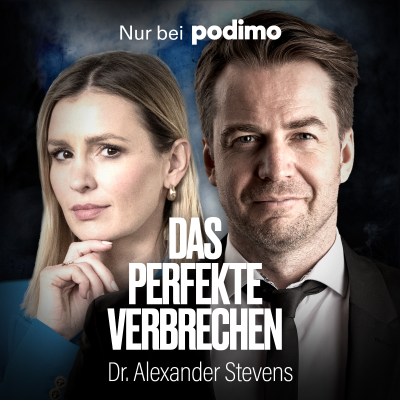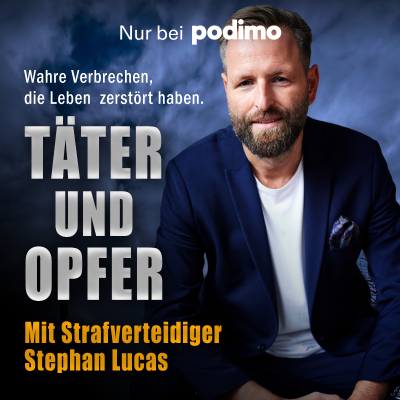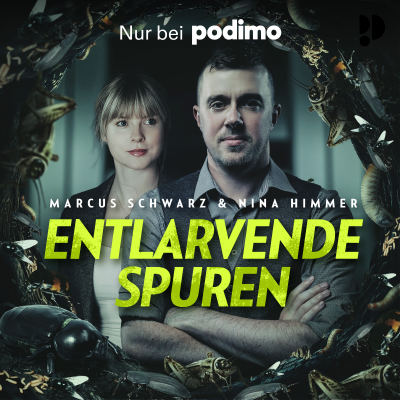
SWC Podcast
Englisch
Gratis en Podimo
Kostenlos hören bei Podimo
Starte jetzt und verbinde dich mit deinen Lieblingspodcaster*innen
- Vertraut von über 1 Mio. deutschen Hörer*innen
- Über 1.000 lokale Podcasts und Shows – nur bei Podimo
- Keine Zahlung nötig
Mehr SWC Podcast
This is the official podcast of Southwestern College, located in Chula Vista, CA. The podcast is a production of The Philosophy and Humanities department. Central topics of discussion are popular culture and philosophy, ethics, and metaphysics (with a focus on consciousness and theology). However, we sometimes touch on local or national news as well as general issues in the discipline of philosophy.
Alle Folgen
8 FolgenEpisode 8: Sexism in the Workplace
In this podcast we are very grateful to speak with one of our friends, Marie. Marie worked her way up the corporate ladder of a few different biopharmaceutical companies, beginning in the 1980s and continuing through the 2000s. She generously shares some of her specific experiences of sexism, but also her general thoughts on such a male dominated atmosphere and culture. Some, like infamous psychologist Jordan Peterson, argue that not all professional disparities between men and women are due to sexism. Some men gravitate towards high risk jobs like bridge building, for example, while some women gravitate towards kindergarten teaching. But does this explain the fact that men still, on average, make more than women? Doesn't the explanation of these disparities often come down to cut and dry sexism? We also touch a bit on Buddhism, a belief system Marie identifies with, and the more tolerant attitude of the Millennial generation regarding issues of prejudice and discrimination. The podcast is primarily conducted by my colleague, Alejandro Orozco.
Episode 7: The Great Hypatia
In this episode I speak with Byzantine historian Dr. Edward J. Watts from the University of California at San Diego (UCSD). Dr. Watts has written an excellent new book on Hypatia, arguably the greatest ancient female philosopher. Most discussions of Hypatia focus on her death at the hands of a Christian mob, whereas Edward's book tries to refocus our attention on the heroism of her life. As we discuss, Hypatia's greatness comes not just from the fact that she was a female philosopher who undoubtedly endured sexism but from the fact that, despite the sexism, she was a great philosopher, earning the respect of male and female intellectuals alike. Throughout our discussion we touch on the state of ancient Alexandria during Hypatia's time, the famous menstrual rag incident, the relationship between mathematics and philosophy, and more.
Episode 6: Death!!!!!!
In this episode, fellow philosophy professor Matt Wion and I discuss… death! Most people would say death is bad. But if we are not there to experience it, how can it be bad? Is it because we are deprived of life? But then, weren’t we deprived of life before we were born? Or, do we survive death in some other sense, like as a soul or a disembodied consciousness? But how is the soul connected to our brain activity? In order to understand death, it seems, we need to understand what we are—our personal identity. Throughout our discussion we touch on past lives, near death experiences, and more, addressing the arguments of thinkers such as Epicurus, Plato, and more.
Episode 5: What Makes Games So Awesome?
In this podcast, Jonathan Gingerich (https://jonathangingerich.net) and I discuss a paper we were supposed to discuss at the American Philosophical Association (APA) Eastern Conference in Savannah. Jonathan has since had the paper published in the Canadian Journal of Philosophy (http://www.tandfonline.com/doi/full/10.1080/00455091.2017.1423224). The general issue we discuss is, what makes games good? Responding to Thomas Hurka (https://philpapers.org/rec/HURGAT) who argues that games’ goodness lies in their complexity, Jonathan’s paper argues that Hurka’s theory should be modified to account for the player’s experience of freedom as an intrinsic good. But what’s the most important part of the player’s experience of freedom? The freedom to play in the first place, or the freedom within the game? And how do the goals and/or rules of a game restrict or enhance the player’s freedom?
Episode 4: A Discussion of the Louie CK Scandal
In this episode, my girlfriend Lynn and I discuss the Louie CK scandal (https://www.nytimes.com/2017/11/09/arts/television/louis-ck-sexual-misconduct.html) and several philosophical issues that arise from it, including consent and undue influence. This one cuts deep because Louie has been one of my favorite comedians for a long time, but what he did was wrong. We use some of the top comments on the original NY Times article (linked above) to guide our discussion.















































